Cognitive Development Reading Comprehension Worksheets for Ages 6-7
9 filtered results
-
From - To
Enhance your child's cognitive development with our engaging reading comprehension worksheets designed specifically for ages 6-7. These printable resources encourage critical thinking and comprehension skills while making learning enjoyable. Featuring diverse themes, our worksheets challenge young learners to analyze text, answer questions, and relate ideas. Ideal for reinforcing classroom learning, our exercises cater to various learning styles, making them perfect for home or school use. Foster your child’s love for reading and boost their cognitive abilities with these thoughtfully crafted worksheets, helping them build confidence and understanding in literacy and beyond. Explore our collection today and support your child's educational journey!


Rhymes in Poems Worksheet
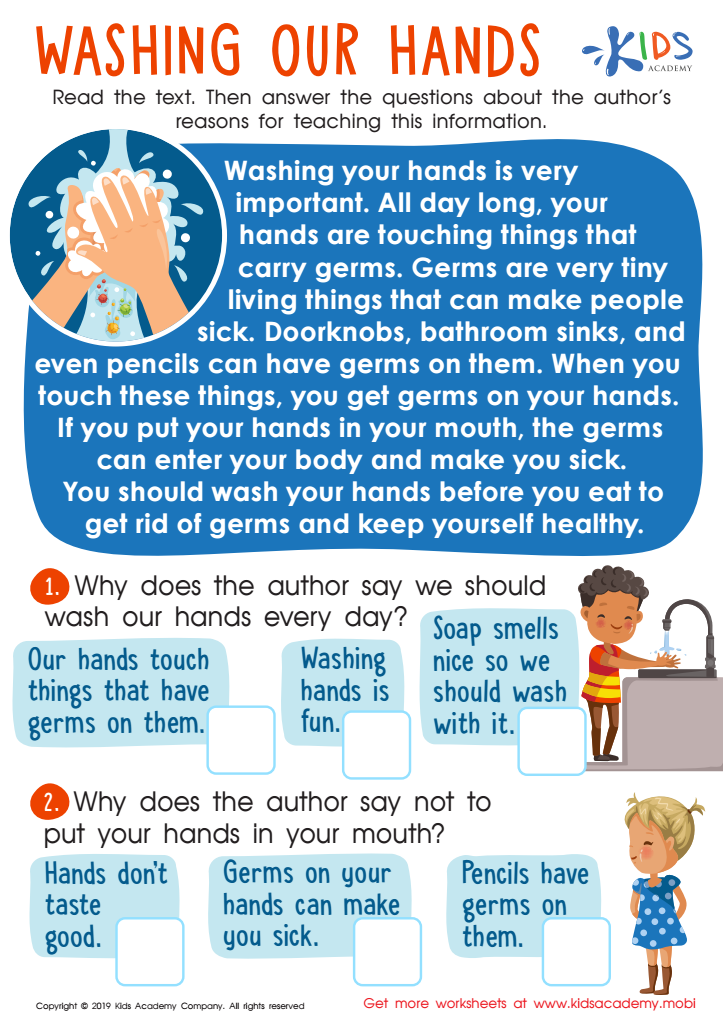

Washing Our Hands Worksheet
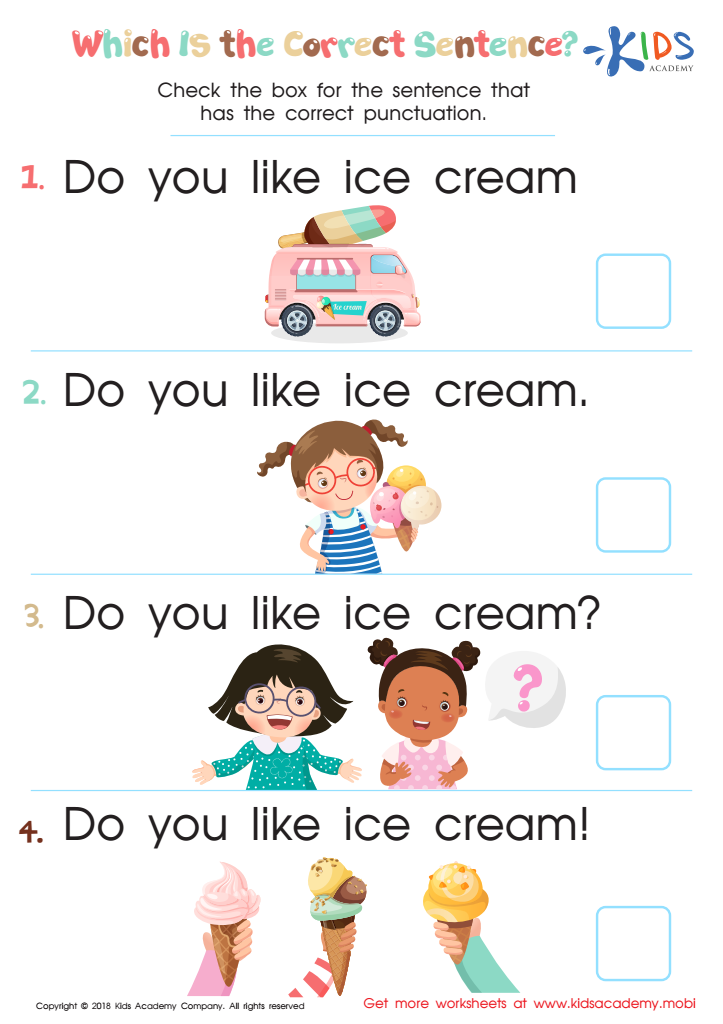

Which is the Correct Sentence? Worksheet
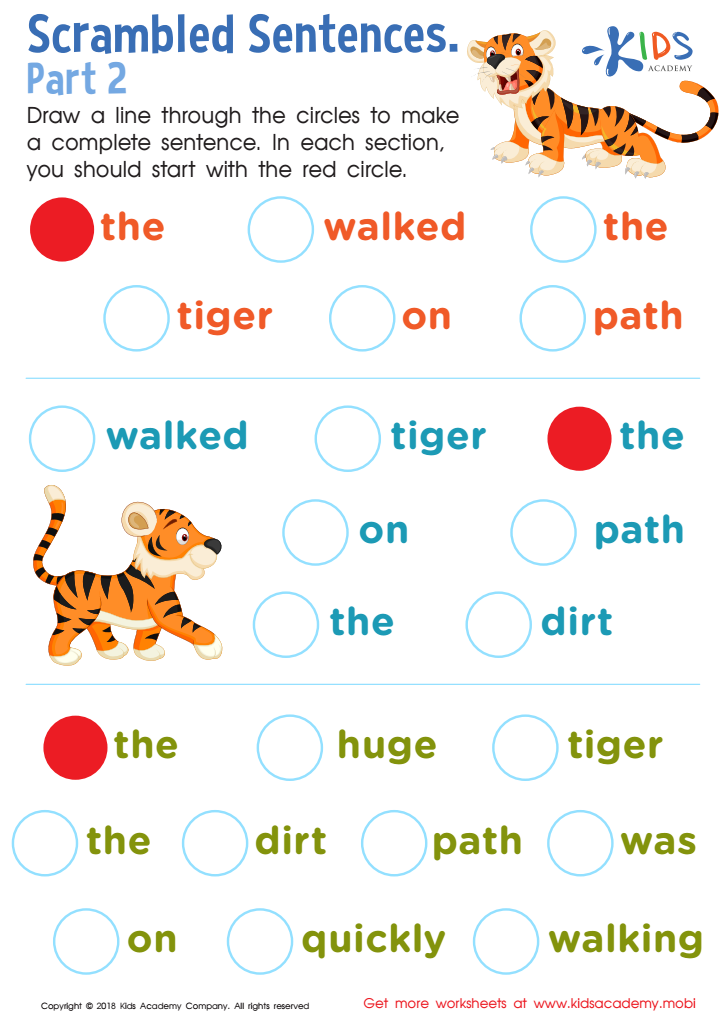

Scrambled Sentences Part 2 Worksheet
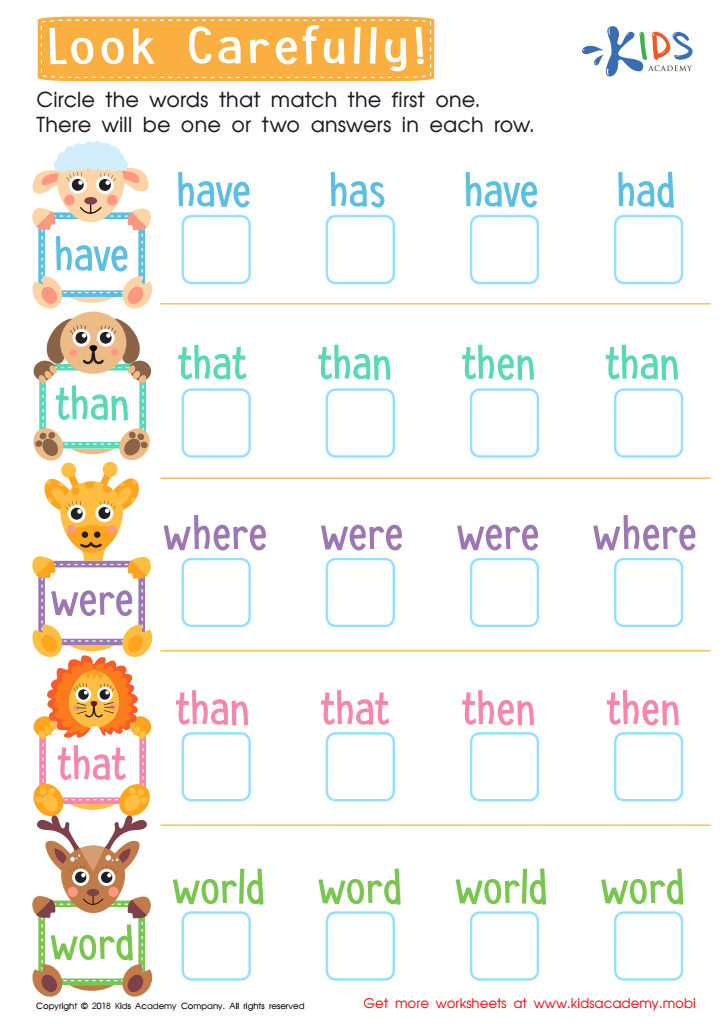

Look Carefully Worksheet
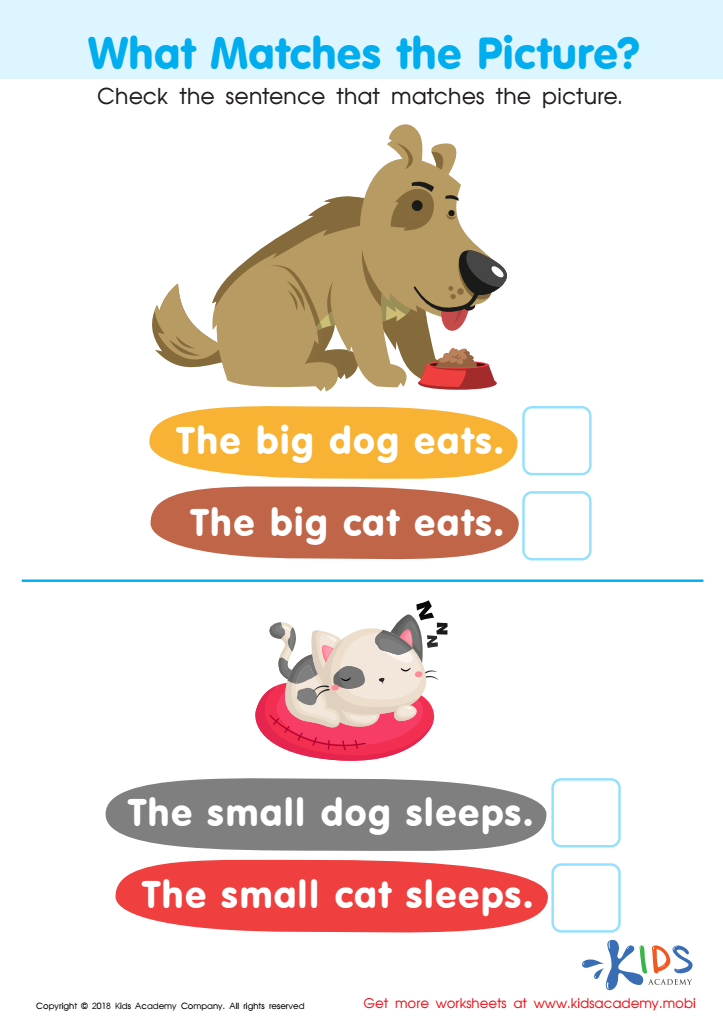

What Matches the Picture? Worksheet
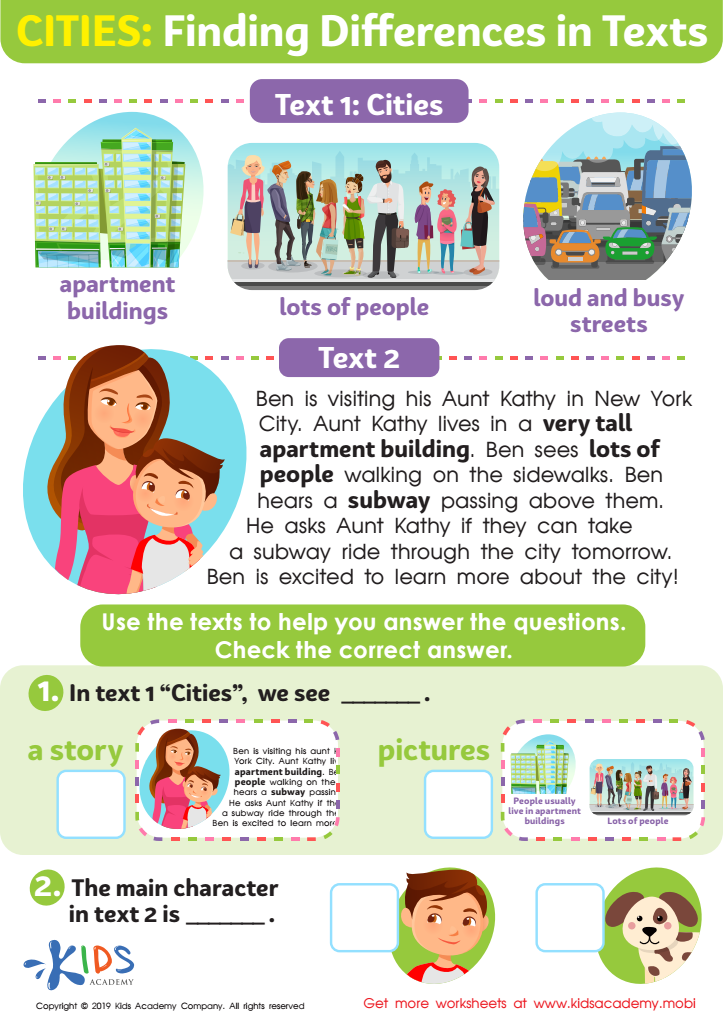

Cities: Finding Differences Worksheet
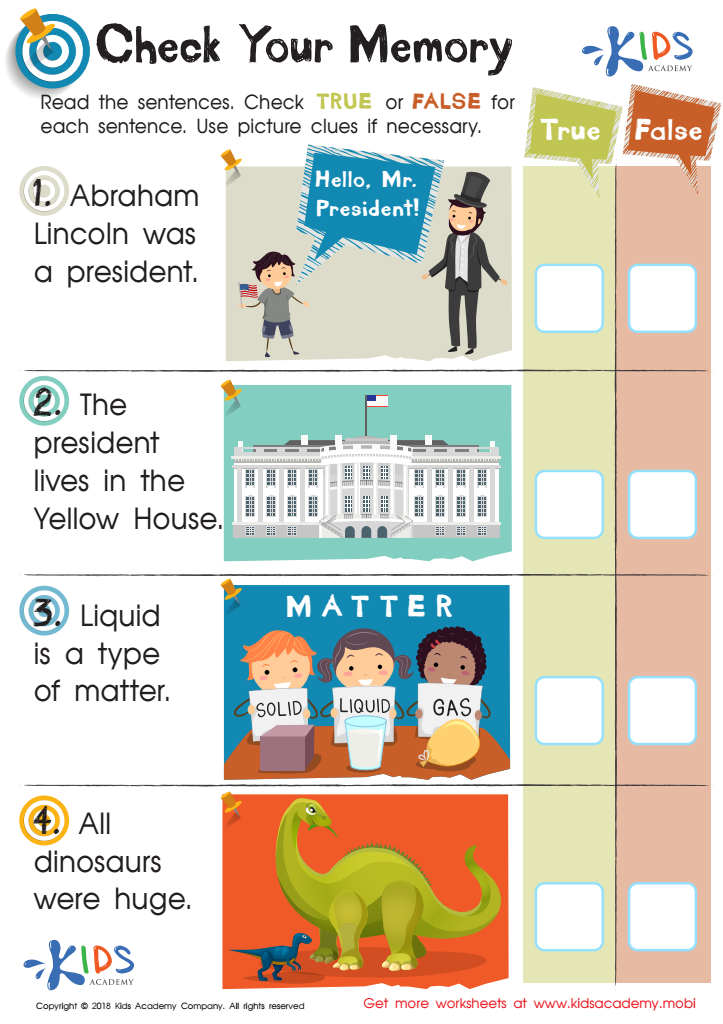

Check Memory Worksheet
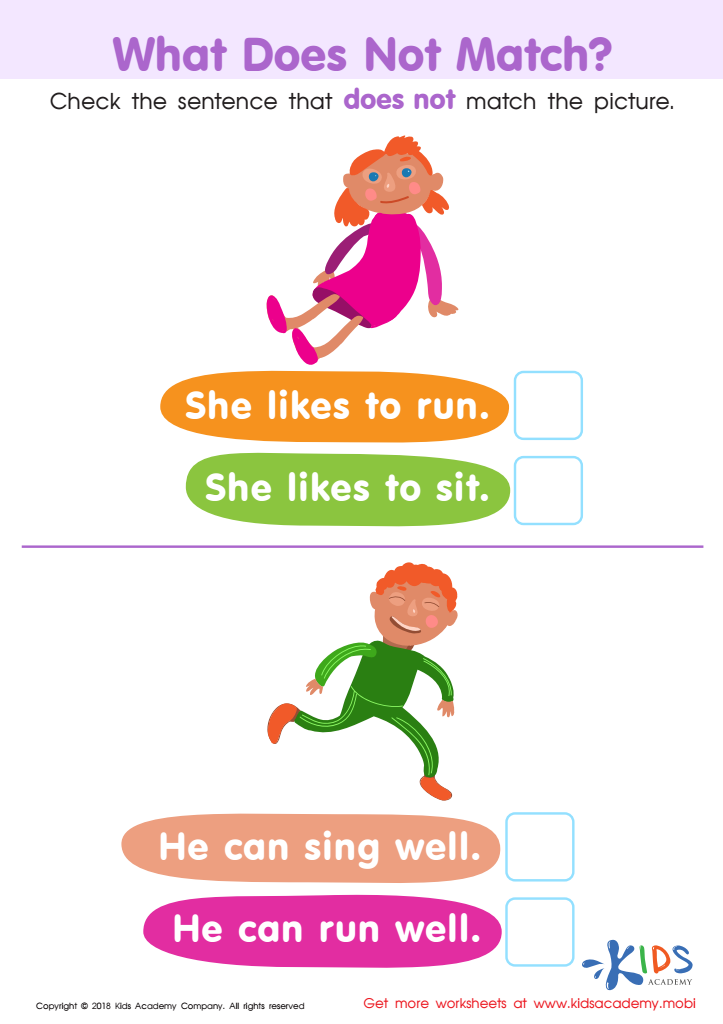

What Does Not Match? Worksheet
Cognitive development in young children is crucial, particularly in the area of reading comprehension for ages 6-7. At this developmental stage, children begin to make connections between written words and their meanings, which lays the foundation for future literacy skills. Effective reading comprehension enhances a child's ability to process information, think critically, and engage with texts in meaningful ways.
Parents and teachers should care about fostering reading comprehension at this age because it directly influences academic success across subjects, as strong reading skills enable children to comprehend instructions and information in everything they learn. Moreover, improved reading comprehension supports emotional and social development, as children can understand narratives and engage in discussions, encouraging empathy and communication skills.
Encouraging practices like shared reading, discussing stories, and asking open-ended questions can stimulate cognitive processes and make reading enjoyable. These activities not only build language skills but also foster a love for literature, encouraging lifelong reading habits. In summary, prioritizing cognitive development in reading comprehension during ages 6-7 equips children with essential tools for learning, personal growth, and navigating the world, laying the groundwork for their future success.

 Assign to My Students
Assign to My Students
















